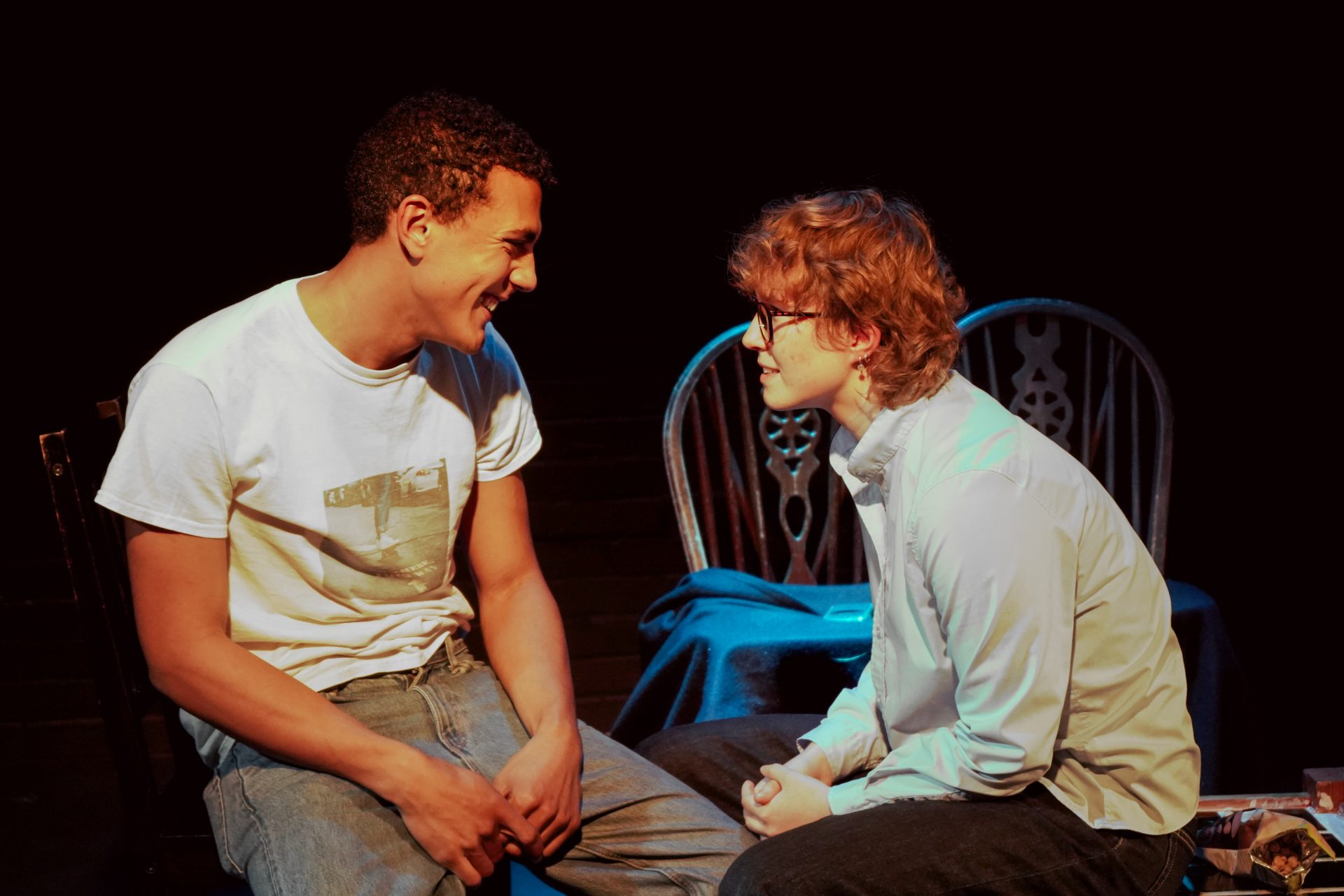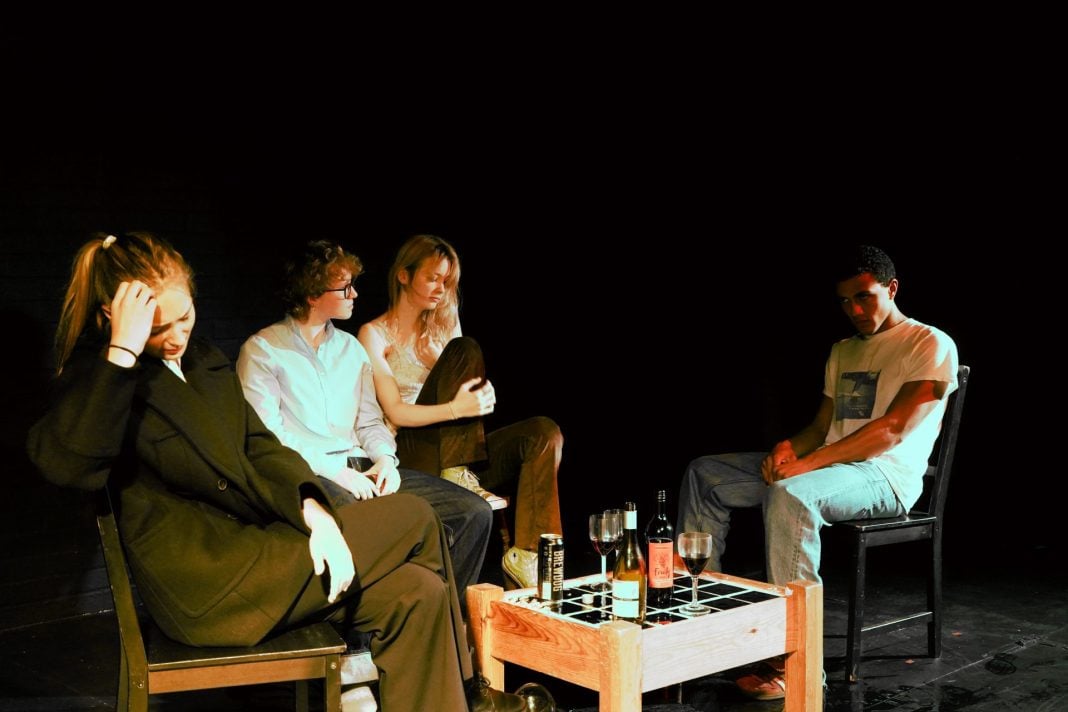Following the success of Bedbugs last year, expectations for Coco Cottam’s newest play were bound to be high. With NUTS, she not only meets these but exceeds them, offering a harrowing portrait of deceit, desire, and the murkiness of morality. The play marks a departure from her previous work, veering into a more plot-driven territory while retaining the strength of character that made Bedbugs so compelling.
NUTS centres on the intense friendship of two women, Eve (Alice Macey-Dare) and Nina (Orla Wyatt). The precarious balance of their relationship topples into chaos when a man, Liberty (Rufus Shutter), invades their flat. His urgency to move in and murky past sets in motion a series of emotional conflicts which unravel this seemingly perfect friendship. What begins as a lighthearted and witty examination of friendship soon develops into something darker and more psychologically complex.
Cottam’s script is stripped back and poised; relying on subtle exposition and controlled tension rather than more bombastic drama. The plot is intentionally minimalist, focusing on the emotional ramifications of Liberty’s arrival. NUTS’ complexity emerges in subtle, seemingly insignificant moments between characters- a cutting remark or a flicker of doubt teasing at what is to come.
Such a script leaves actors precariously exposed; thankfully this is a challenge they faced brilliantly. Alice Macey-Dare’s Eve radiates a palpable sense of fragility, a character whose self-doubt slowly consumes her. As Liberty, Shutter is convincingly charming, his smooth exterior concealing a more menacing presence. Shutter pulls off this precarious balancing act effortlessly, from the start the audience is sceptical of Eve’s trust in him. As Tasch, Thalis Kermisch threatens to steal the show, delivering a monologue so devastating that it is difficult to watch. Orla Wyatt is particularly spectacular as Nina, whose initial self-assurance is worn away by Liberty. Wyatt’s performance is both painful and compelling, her OUDS debut casting her as a talent to watch.
The level of maturity and depth brought to the roles is impressive. The shifting relationship dynamics, particularly between Nina and Liberty, are rendered brilliantly. The subtle psychological warfare between them is palpably intense, with Eve being torn apart in the middle. Coco sets up all the relationships in the play as shadowy parallels or disturbing distortions of each other—a complex web within which we too are tangled.

The intensity of such performances is complemented by the production design. The simplistic set design – comprised of little more than a few chairs and a table – emphasises the close confinement of the characters’ world. The Burton Taylor Studio provides the perfect venue for such a claustrophobic play; the audience is trapped tightly within the same pressure cooker of a flat as the characters. The sound design, too, deserves to be mentioned. Eerie background noises of ticks, squeaks, and heavy breathing play from behind the audience. Although disorientating, the soundscape becomes integral to the subtle heightening of tension, pushing the audience forward into the action. Even the play’s occasional comic moments take on a sinister edge when complimented by such chilling sound design. NUTS works in its ability to keep the audience on edge, waiting for the delicately thin emotional facades the characters have built to come crashing down.
Ultimately, the play succeeds not just because of its strength of writing and performance, but because Cottam taps into something universal about the deceit and doubt that can lurk beneath the surface of even the most secure relationships.


